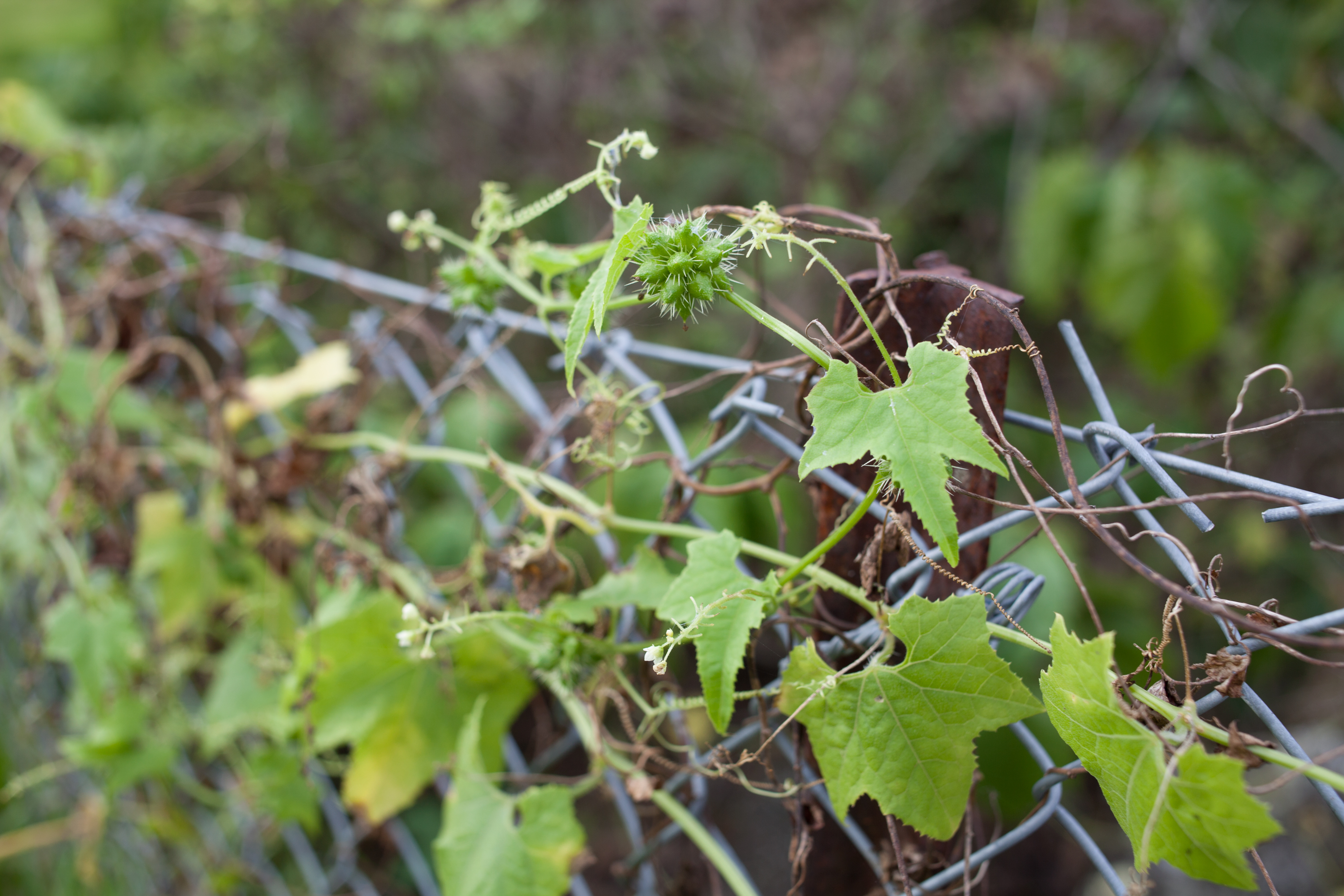2017 Symposium: Ipu ki uta, ihu ki tai
17 August 2017 - 19 August 2017

Mawhai (native cucumber), Ihumatāo. Image: Rebecca Hobbs.
2017 Symposium published papers: Ipu ki uta, ihu ki tai
Keynote
Dr Carl Mika
Thursday 17 August 2017, 5:30pm
WA224 Conference Centre, AUT University
55 Wellesley Street
Free
Wānanga
18 – 19 August 2017
Makaurau Marae, 8 Ruaiti Road, Māngere
$60 Waged, $30 Unwaged
* To attend the wānanga, you must also attend the keynote lecture. If the cost is a barrier to your attending the wānanga, please get in touch with us at sgallery@aut.ac.nz
“The agenda of colonisation has been the constant presence of a philosophical colonisation between the self and things in the world, accomplished by educational practices which […] ideally suit the freezing of things in the world so that they yield information.”
Dr Carl Mika
Knowledge is often associated with order: with structure, taxonomy, a system for what is able to be known. In this it aligns with a will to affirm the status quo, to translate difference, to make meaning tidy. This symposium looks for possibilities in resistance to this model. We ask: What does it mean to recognise that knowing can also be something physical, a state of being, collectively held rather than a solely intellectual or an individual experience? What does it mean to acknowledge the unknowable? Mystery and ‘Being’—how can they exist, even flourish, within institutional contexts where hegemonic knowledge is given pre-eminence?
We ask these questions specifically in relation to contemporary practices here in Aotearoa New Zealand, and alongside curators, artists and researchers who work from within fundamentally distinct cultural concepts of knowledge, while seeking to manaaki difference, and remain accountable to each other from within that difference. In this respect, the question around who produces and transmits knowledge is underpinned by another: How do ‘we’, as non-indigenous, Māori and Pākehā, as tangata whenua and tauiwi, navigate our respective positions in relation to each other, and with the recognition that the effects of colonisation are ongoing? As curator Emma Ng has written, “Our questions of cultural belonging are relational ones.”[1] Knowing is also, and always, about how we come to know each other.
As a university gallery, St Paul St is attentive to approaches to education, research and knowledges that are not governed by dominant paradigms. In the context of Aotearoa New Zealand, we are particularly concerned with critique of the colonising logic of much institutionalised curatorial discourse, and for this reason, continue to initiate and participate in discussions around local curatorial practices, ways of working, and knowledges that are formed and reformed relationally. As non-indigenous organisers of this wānanga, we are thinking through the responsibility to educate ourselves, and what it means to listen.
In the sixth year of the symposium, we turn to Dr Carl Mika’s work as a foundation for the discussion of working practices that acknowledge mystery and Being in resistance to the ways conventional education and curatorial practices often constitute the “freezing of things so that they yield information.” Te Hira Mika’s essay, Overcoming Being in Favour of Knowledge, is the basis for a keynote presentation addressing the terms ‘whakapapa’, ‘whaunanga’ and ‘ira’, troubling a reductive translation of matauranga as 'knowledge', and the corresponding idea that things may be known definitely. The keynote, Dealing with the indivisible: A Māori philosophy of mystery, raises the counter-colonial potential of mystery and Being in relation to the concepts of wellbeing, self-sovereignty and the sovereignty of things in the world.
Following the keynote, we will share a meal in lei-pā, St Paul St exhibition curated by Lana Lopesi and Ahilapalapa Rands, which focuses on food and labour to open up conversations of cultural exchange across Moana-nui-a-kiwa. The next day and night will be spent in wānanga at Makaurau Marae in Māngere. The programme here is developed in collaboration with Qiane Matata-Sipu, Desna Whaanga-Schollum and Rebecca Ann Hobbs, in relation to place—Ihumātao—with workshops, hīkoi and structured discussions. It includes speakers from within the Gallery’s 2017 programme as specific propositions for approaches to working with knowledge, knowing and learning in this cultural context. Our stay at Ihumatāo continues the dialogue from the 2016 ST PAUL St project Te Ihu o Mataoho, supported by SOUL.
The title of the smposium, Ipu ki uta, Ihu ki tai [2], holds within it two sites: the city where St Paul St Gallery sits, and Ihumatāo where the wānanga takes place. The wānanga, and the dual sites of the symposium, emphasise movement in our discussion, and take us back to themes of guest and host obligations [3] that have underpinned these symposia as a series, and to the assertion that knowledge is formed in relation, and through relationships.
Abby Cunnane and Balamohan Shingade
[1] Emma Ng, ‘It’s gonna hurt, at least a little’, Reflections on the Asia-Pacific Century (exhibition), 2016.
[2] The title, Ipu ki uta, Ihu ki tai, comes from Valance Smith. Te Ipu o Mataoho is the bowl of Mataoho (Mt Eden); Te Ihu o Mataoho is the Nose of Mataoho (Ihumatāto). Mataoho is the deity who created many of the volcanic cones, lakes and mountains in Tāmaki Makaurau. Two of these landmarks are Te Ipu o Mataoho – the bowl of Mataoho, and Te Ihu o Mataoho – the nose of Mataoho.
[3] Jon Bywater, from Local Time, has articulated it like this, “The difference between thinking of yourself as an in-between guest and host and oscillating between them is this question of taking responsibility for even being a guest, instead of [just] being a passive guest.” See ‘Cause to visit’, an interview with Danny Butt, Alex Monteith and Jon Bywater, 2016
The ST PAUL St 2017 Symposium is generously supported by Creative New Zealand.
PROGRAMME
Thursday 17 August: Dr Carl Mika keynote lecture
Friday 18 August: Wānanga
11:00–12:00 noon Whakawhanungatanga session
12:00 noon Lunch